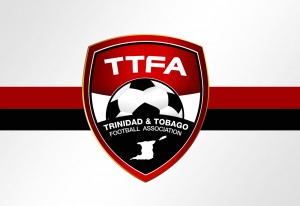Trinidad & Tobago WNT overcoming major hardship on WWC quest: ‘When our feet give out, we are going to play with our hearts’
“For the love of the game” – That’s what most players will tell you when asked about why they play.
 Fair enough, but the resources that surround the exercise of that love vary greatly and can test just how strong that love is.
Fair enough, but the resources that surround the exercise of that love vary greatly and can test just how strong that love is.
While the U.S. Women’s National Team and their fans fret about which lineups and tactical approaches will bring home the program’s third Women’s World Cup championship next summer, the Trinidad and Tobago women’s national team weren’t quite sure where their next meals were coming from when they arrived in the United States this week ahead of the start of CONCACAF WWC qualifying next Wednesday.
+ READ: TurfGate Reader: Women’s World Cup players take 2015 pitch fight to human rights tribunal
Maylee Attin-Johnson, 28, is Trinidad and Tobago’s captain. She has been a “Soca Princess” (the nickname for the women’s team) for over 14 years. She started playing soccer when she was 11, playing exclusively against boys for three years before joining a women’s team.
She was fortunate to receive a scholarship to attend high school in the U.S. and later earned a soccer scholarship to Kennesaw State University in Georgia, where she had a tremendous career.
Her long tenure with the T&T program is a testament to just how strong her love for the game is. She has experienced the huge benefits of the sport, including securing a college education, but she has also worked through the struggles of participating on a national team with extremely limited resources.
Randy Waldrum, current coach of the Trinidad women’s national team, has had had a front row seat on the extreme challenges players from smaller CONCACAF nations regularly face. The current head coach of the Houston Dash (and former women’s head coach of NCAA powerhouse Notre Dame) agreed to become the volunteer coach of T&T squad for a variety of reasons.
“I had a comfortable living and comfortable job for 15 years,” the Texan explained to SoccerWire.com this week. “I felt like it was the right time to take on the Dash challenge. The reason I took on the Trinidad job is similar. I have always wanted to coach internationally and coach a national team. I think all coaches want to coach at the highest level they possibly can.”
 He was aware of the challenges of coaching for the Caribbean island of 1.2 million citizens, as he had previously coached their U-17 men’s team. However, that was during the tenure of longtime CONCACAF and FIFA kingpin Jack Warner.
He was aware of the challenges of coaching for the Caribbean island of 1.2 million citizens, as he had previously coached their U-17 men’s team. However, that was during the tenure of longtime CONCACAF and FIFA kingpin Jack Warner.
+ READ: Four countries qualify for the FIFA Women’s World Cup Canada 2015
Now, with Warner deposed by corruption charges, the Trinidad and Tobago Football Association is millions of dollars in debt. Nearly all employees of the federation are not currently receiving paychecks and the tight supply of resources has become nearly non-existent.
Because of Waldrum’s commitment to the Houston Dash, the Trinidad team held their pre-Caribbean Cup preparation in Houston. Coach Waldrum secured both housing, fields and meal plans for the team. All the federation had to do was get the players to the location and pay for it.
However, the players’ arrival was delayed and six weeks of preparation turned into two. He noted that his team is fortunately one of the most talented in the Caribbean and was able to win the tournament despite a shortened and fragmented camp preceding the competition.
Attin-Johnson further explained the current resource constraints of the team.
“Due to financial difficulties by our federation and the lack of support for women’s football on a whole, it’s always difficult to keep the girls together outside of tournament play,” she noted. “So most times we come together two to three months before major tournaments and train. That’s very difficult when competing against the likes of the USA and Canada.”
The challenges in daily training were basic and continual including both facilities and equipment. Waldrum candidly recounted what the team dealt with last month.
“Honestly, we struggled daily just to have bottled water at the field. I had eight soccer balls to practice with,” he said. “There is no money. It is a battle for everything we are trying to get.”
Even the plans for each practice were constantly adjusted to deal with player availability and field conditions, a challenging task for even the most experienced coach.
“Every practice I had planned had to be changed on the spot because certain players weren’t there,” Waldrum lamented. “I would get there and there were no portable goals, so I couldn’t play small games.”
After a week or so, Waldrum had decided the team wouldn’t get the necessary training unless they went into residency. Waldrum and the federation were able to secure housing and field access with the largest oil company on the island, Petrotrin.
+ READ: Veteran-heavy USWNT begin final countdown to World Cup with Mexico friendlies
Coach Waldrum lauded the generosity of Petrotrin and noted that the team will owe a huge debt of gratitude to the company if they qualify for the World Cup. In contrast to the previous training environment where players were traveling at least an hour from their homes to fairly poor fields, the Petrotrin facility had bungalows, television, a swimming pool, and a beach where the team could do ice baths everyday.
“The setting itself was good because we could bring all the players in to get them totally focused on training,” he noted.
Unfortunately, the only issue was that the field they had wasn’t in great condition. This challenge became insurmountable once rainy season began and the entire field was submerged to the point where players couldn’t pass the ball to each other. So Coach Waldrum and the federation scrambled and found another suitable field 30 minutes away, but unfortunately had no way to get there. Petrorin stepped in again to boost the team and provided transportation to the field.
Attin-Johnson had high praise for the quality of the practice sessions Coach Waldrum put together for the team, calling them “very intense and organized.” She noted the training sessions were an upgrade from what they were exposed to before Waldrum came on board.
“He definitely has a high football IQ and he also knows how to get in the minds of players and push them to perform at their best,” she said of her team’s new coach.
After winning the Caribbean Cup on August 26, the federation knew they would be sending the team to the United States for the CONCACAF Women’s Championship this month. This would require funds for travel, visas, and a camp setting arranged by Coach Waldrum in Dallas.
The original plan was for the team to arrive in Dallas on October 4, but failure to pay the necessary fees and fill out the paperwork for the visas meant that the team arrived in the U.S. four days late. That leaves just over a week until their opening match against the USWNT, the top-ranked team in the world.
On Wednesday a frustrated Waldrum tweeted that his team arrived in Dallas with no federation staff and only $500. Amazingly, the U.S. soccer community sprung into action as word of the team’s plight quickly spread through Twitter. Coverage cropped up on Deadspin, SB Nation, MLSsoccer.com and the Washington Post in a matter of hours.
I need HELP! T&T sent a team here last night with $500 total. No equipment such as balls,no transportation from airport to hotel, nothing.
— Randy Waldrum (@CoachWaldrum) October 8, 2014
I don’t know how I’m going to feed these players starting at lunch today! If you know of anyone in Dallas area that will help with food, etc — Randy Waldrum (@CoachWaldrum) October 8, 2014
Please let me know asap! And I’m suppose to qualify this team for a World Cup! I have to help these players somehow..they deserve better — Randy Waldrum (@CoachWaldrum) October 8, 2014
The response and outpouring of support for the team was unbelievable. American Outlaws’ Dallas chapter organized a trip to Costco to buy several car loads of snacks, gatorade, and water for the team. FC Dallas provided a place to train, equipment, and even a match between the T&T team and an ENCL side with all proceeds going to the Soca Princesses. Jen Cooper, a Dash TV commentator and established soccer figure in Houston, created a donation page on her website and raised nearly $9,300 in just a few hours. There were reports that U.S. Soccer sent the team a monetary donation, while Canada sent the team much-needed gear. Perhaps the most poignant and inspiring act of support came from Trinidad’s opponent in group A, Haiti. The Haitian team was recently profiled in the New York Times in an article that detailed their own struggles and resource constraints coming from one of the poorest nations in this part of the world. Upon reading and hearing of the plight of their competitors, the team collectively decided to send the money they had received as donations, over $1,300, to the Trinidad WNT. Unfortunately, the tremendous support of this week doesn’t erase the reality that the team was unable to prepare for the tournament the way they had hoped to. Waldrum was frank in his assessment of his team’s preparation, “To prepare properly for what we are about to embark on – with the US on the 15th, we aren’t ready. It all comes down to funding.” “Underprepared is an understatement,” said Attin-Johnson. “I know something positive, and something epic have to come out of this. Regardless of the abysmal preparation we received, we are going to go out and fight for each other and for our country on the 15th. “We know [defeating] America will be a tumultuous feat, but David once slew Goliath. So for us we know we are the underdogs and when our feet give out, we are going to play with our hearts.”
We just had the pleasure of meeting @CoachWaldrum and #SocaPrincesses #DJMikeKiss #TeamKiss #OneLoveSoundTX pic.twitter.com/kXrDLcabd3
— DJ Mike Kiss (@djmikekiss) October 9, 2014
Regardless of the hardships, both Attin-Johnson and Waldrum are entirely dedicated to their dream of earning a place in the World Cup.
“My main goal is qualifying for the World Cup,” said Attin-Johnson. “Anything less than that is failure.”
Waldrum calls the Trinidad team one of the most unique he has ever coached.
“I have had a lot of great teams and coached a lot of committed players,” he said, “but I can’t say I have ever been around a group of women that have committed so much to something for getting absolutely nothing in return other than being the first team ever from their country to qualify for a World Cup.”











